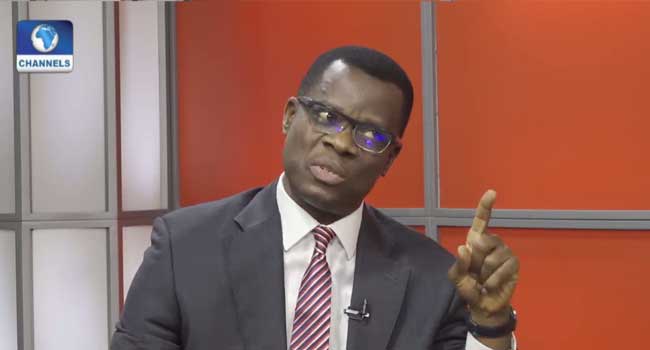BVAS Is A Vaccine That Deals With Election Rigging, Manipulation – Iginni

The INEC Resident Electoral Commissioner in Akwa Ibom State, Mike Iginni, has hailed the deployment of the Bimodal Voters Authentication System (BVAS), saying it will tackle election rigging and manipulation.
BVAS is a device that combines fingerprint and facial recognition for the verification of voters and it replaces the Smart Card Readers used in previous elections.
As part of measures to enhance transparency during elections, the Independent National Electoral Commission used the technological device for the Anambra State governorship election on November 6.
Speaking during an interview on Channels Television’s Sunrise Daily, Iginni, assured Nigerians that INEC is committed to election service delivery.
“If you look at all the innovations that we have put in place, the BVAS is the latest electoral sheriff in town. It has been described as a vaccine to deal with election rigging and manipulation in our country,” he said.
READ ALSO: At Least Five Killed As Gas Explosion Hits Ladipo Market
The Akwa Ibom REC also reacted to the glitches associated with BVAS during elections.
Iginni dispelled rumours that 70 percent of the equipment do not function effectively.
He explained that BVAS worked effectively during the just concluded governorship election in Anambra State.
“Take my words very seriously. What you are talking about BVAS (is not correct). We had recorded 88.5 percent of uploaded results,” he added.
When asked whether political parties should use direct or indirect primaries for primaries, Iginni said the electoral umpire has not taken any decision yet.
Nonetheless, he explained INEC has the responsibility of providing that technical advice on whatever mode parties would decide on.
There has been a heated debate over the mode of primaries to be adopted by political parties as the Senate adopted the position of the House on the direct primaries.
The direct primary election is the mode of the election where registered members of a party vote for who they want to be the candidate of their party.
The indirect primary election is the mode where party members elect delegates who in turn elect the party’s candidates on their behalf.
The adoption of direct primaries by the two chambers of the National Assembly is generating reactions from some quarters, including governors.





